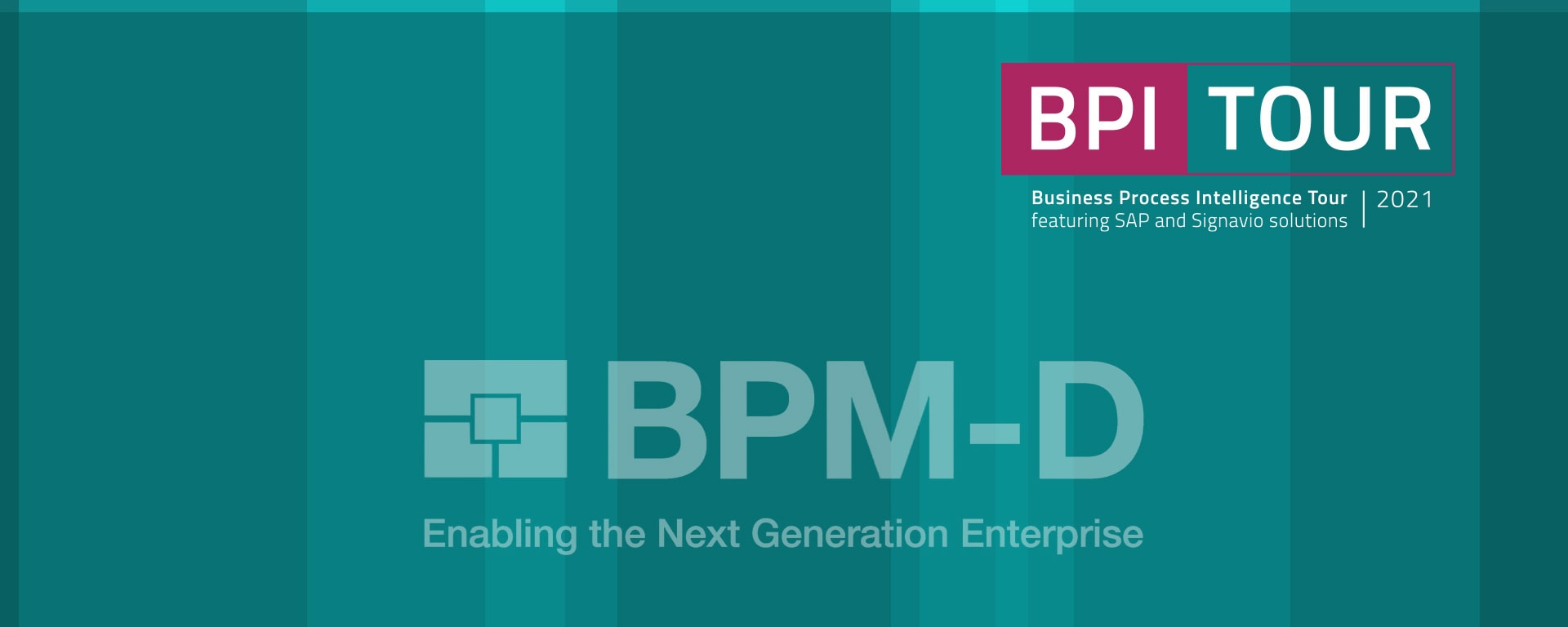Digitizing operations has been a high priority for many organizations worldwide for some time; it’s now clear how much the pandemic accelerated this trend. Transformation came up time and time again across all elements of our recent BPI Tour.
But for many organizations, finding the right place to start can be difficult, as decision-makers leap into action without considering why ‘BPM discipline’ is essential for digital transformation.
At Signavio, our partners are instrumental in helping customers achieve their digital transformation goals, a point illustrated clearly during the US partner breakout session with BPM-D.
What is ‘BPM discipline’?
BPM-D is known for its track record in establishing and applying the discipline of business process management to enable successful digital transformation and superior business performance. Dr. Kirchmer stressed that some organizations begin their digital transformation projects without appreciating that it is an ongoing journey, not a destination.
However, even when the need for a journey has been established, those journeys sometimes still fail to achieve their goals. So how can organizations ensure their transformation projects are a success?
For Dr. Kirchmer it is about ensuring that an organization is value-driven, process-led, and data-based. Digital transformation requires BPM discipline, which encompasses three key elements to keep an organization’s processes on track: focus, improve, and sustain.
This discipline enables processes to be the value-switch for digital transformation, with external benefits such as quality, agility, innovation, and internal ones like transparency, efficiency, standardization, and compliance.
The BPM journey
According to Dr. Kirchmer, figuring out where to start is one of the main challenges. Any organization must take time at the beginning of its BPM journey to figure out, "Where are the high impact and low maturity processes that will make a tangible difference to business performance?"
This is where organizations should utilize process impact assessments. This includes integrated journey mapping, linking processes to the journey map, and ultimately providing more direction for that digital transformation project. It also allows the opportunity to take stakeholder input, which is crucial for establishing the values driving the project and defining the overall goals.
The next phase is to really get to know and understand your processes using process analysis tools. The use of process mining activities can provide even deeper learning about processes, as part of a process performance evaluation. This allows:
- Investigation of data to identify targets for improvements
- Measurement of business process performance
- Creation of investigations to summarize findings
Analytics should be deployed for further process performance improvements, starting with task, role, IT, and automation-related analysis. Organizations should look at cost, time, resource, and scalability analysis through process simulation to get even deeper insights.
Such analysis means that organizations can then see the actual cost savings to be made, they can remove the bottlenecks in the organization, and deliver true business value. Furthermore, it can also be used to drive change management and explain how working environments will change for people, a critical part of any digital transformation, according to Dr. Kirchmer.
Why ‘BPM discipline’ is essential for digital transformation
For Dr. Kirchmer, the idea of BPM discipline was a thread that should run through almost every digital transformation project. If organizations can keep that front of mind, then successful transformation is likely. He offered the following final tips for companies embarking on digital transformation:
- Processes deliver the value for digitization – never forget this!
- Focus on what matters most – do not try and do everything and instead identify your high priority and impact process. Fix first what matters most.
- Transform value-driven approach into an end-to-end process context – this should be based on your operating model and enable you to understand how processes are linked, quantify effects of improvement, and the impact on the rest of your end-to-end business processes.
- Sustain value through process governance – think early about realizing this value and keeping processes on track throughout.
Underpinning these elements, once again, is that to make all of this happen, you absolutely need BPM discipline: a clear, structured, planned approach to making the most of your digital transformation efforts.
To find out more about how Signavio can help you ensure smooth digital transformations, visit the dedicated Signavio BPI Tour 2021 landing page today.

